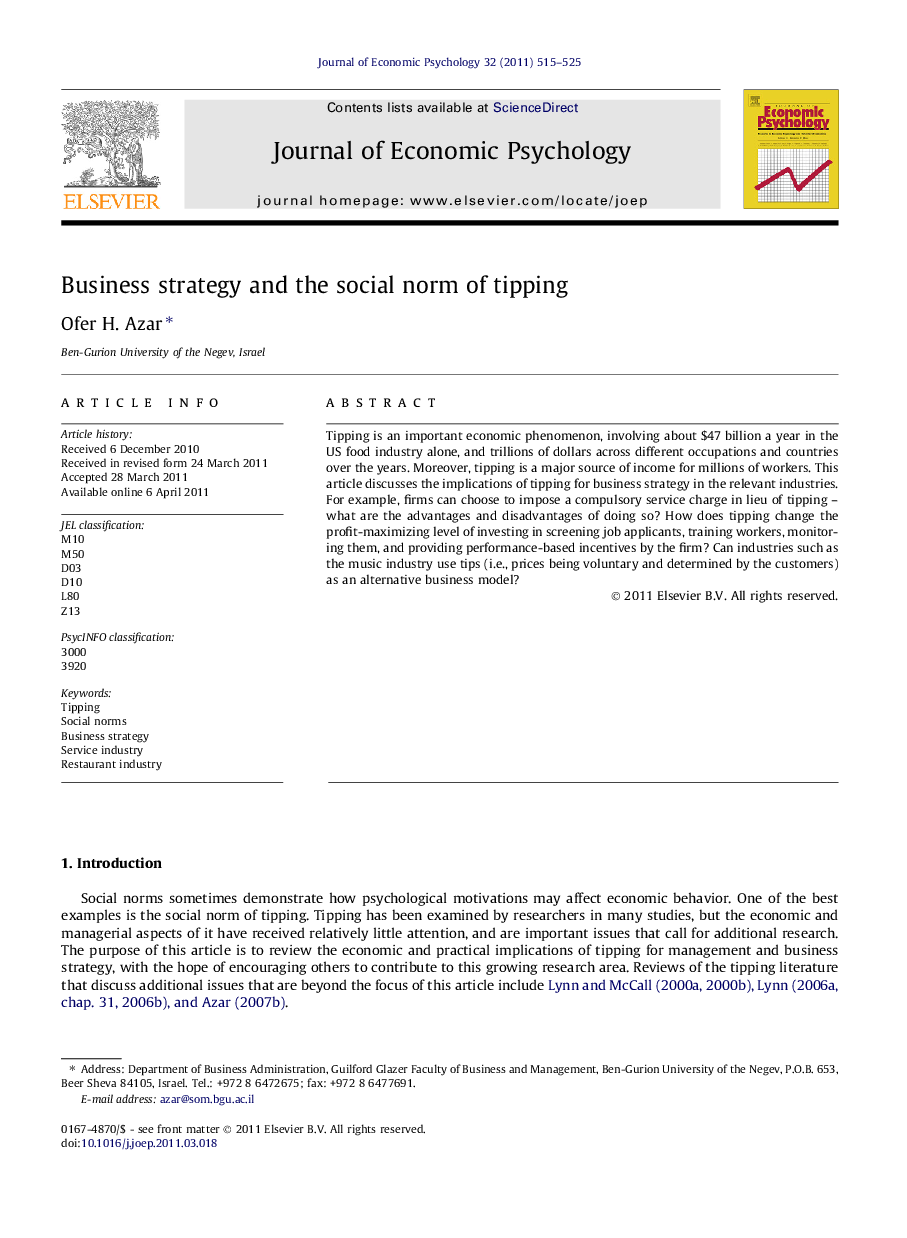| Article ID | Journal | Published Year | Pages | File Type |
|---|---|---|---|---|
| 885248 | Journal of Economic Psychology | 2011 | 11 Pages |
Tipping is an important economic phenomenon, involving about $47 billion a year in the US food industry alone, and trillions of dollars across different occupations and countries over the years. Moreover, tipping is a major source of income for millions of workers. This article discusses the implications of tipping for business strategy in the relevant industries. For example, firms can choose to impose a compulsory service charge in lieu of tipping – what are the advantages and disadvantages of doing so? How does tipping change the profit-maximizing level of investing in screening job applicants, training workers, monitoring them, and providing performance-based incentives by the firm? Can industries such as the music industry use tips (i.e., prices being voluntary and determined by the customers) as an alternative business model?
► Tipping involves about $47 billion a year in the US food industry alone. ► Tips may serve as an alternative business model in the music industry and others. ► Tipping has many implications for business strategy, such as: ► The choice between tipping and service charges. ► How much to invest in screening, training, monitoring and incentivizing workers.
